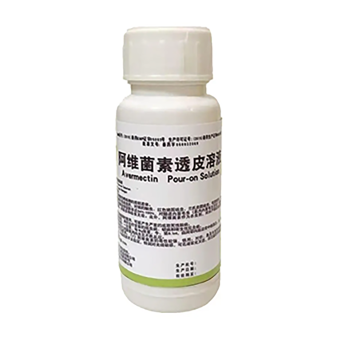- Afrikaans
- Albanian
- Amharic
- Arabic
- Armenian
- Azerbaijani
- Basque
- Belarusian
- Bengali
- Bosnian
- Bulgarian
- Catalan
- Cebuano
- Corsican
- Croatian
- Czech
- Danish
- Dutch
- English
- Esperanto
- Estonian
- Finnish
- French
- Frisian
- Galician
- Georgian
- German
- Greek
- Gujarati
- Haitian Creole
- hausa
- hawaiian
- Hebrew
- Hindi
- Miao
- Hungarian
- Icelandic
- igbo
- Indonesian
- irish
- Italian
- Japanese
- Javanese
- Kannada
- kazakh
- Khmer
- Rwandese
- Korean
- Kurdish
- Kyrgyz
- Lao
- Latin
- Latvian
- Lithuanian
- Luxembourgish
- Macedonian
- Malgashi
- Malay
- Malayalam
- Maltese
- Maori
- Marathi
- Mongolian
- Myanmar
- Nepali
- Norwegian
- Norwegian
- Occitan
- Pashto
- Persian
- Polish
- Portuguese
- Punjabi
- Romanian
- Russian
- Samoan
- Scottish Gaelic
- Serbian
- Sesotho
- Shona
- Sindhi
- Sinhala
- Slovak
- Slovenian
- Somali
- Spanish
- Sundanese
- Swahili
- Swedish
- Tagalog
- Tajik
- Tamil
- Tatar
- Telugu
- Thai
- Turkish
- Turkmen
- Ukrainian
- Urdu
- Uighur
- Uzbek
- Vietnamese
- Welsh
- Bantu
- Yiddish
- Yoruba
- Zulu
10 月 . 13, 2024 21:43 Back to list
albendazole deworming dosage for goats
Albendazole Deworming Dosage for Goats
Deworming is an essential aspect of goat husbandry, ensuring the health and productivity of these animals. Among various deworming agents, Albendazole stands out as a widely used anthelmintic for controlling gastrointestinal parasites in goats. Understanding the correct dosage and administration of Albendazole is vital for effective treatment and preventing resistance development among parasites.
What is Albendazole?
Albendazole is a broad-spectrum anthelmintic belonging to the benzimidazole class. It works by inhibiting the formation of microtubules in the parasites, thereby blocking their energy metabolism and leading to their death. Albendazole is effective against a variety of parasites, including roundworms, flatworms, and some protozoa. Its efficacy, coupled with a favorable safety profile, makes it a popular choice among goat producers.
Importance of Deworming in Goats
Goats are susceptible to various internal parasites that can significantly impact their health and productivity. These parasites compete for nutrients, leading to weight loss, reduced feed efficiency, and compromised immune function. In severe cases, parasitic infections can cause anemia, diarrhea, and even death. Regular deworming helps maintain the health of the goats, ensuring optimal growth, reproduction, and milk production.
Determining the Correct Dosage
The typical dosage of Albendazole for goats is based on the animal's weight. A common recommendation is to administer 10-15 mg of Albendazole per kg of body weight, given as a single oral dose. This range allows for flexibility based on the specific product formulation and the goat's health status. For example, an average adult goat weighing 50 kg would require between 500 mg to 750 mg of Albendazole. Accurate dosing is crucial; under-dosing can lead to ineffective treatment and may contribute to the development of drug-resistant parasite populations.
albendazole deworming dosage for goats

Administration Method
Albendazole is usually available in suspension or tablet form. For optimal absorption and effectiveness, it is advisable to administer it orally. Ensuring that the goats receive the full dose is essential, which may require careful handling, especially if the goats are unaccustomed to receiving medication. For goats that are resistant to oral dosing, a dosing syringe can help deliver the medication directly into the animal's mouth.
Timing and Frequency of Deworming
The timing of deworming will vary based on management practices, environmental conditions, and the specific parasite pressures in a given area. It is generally recommended to deworm goats at least twice a year. However, in regions with a high parasite load or for goats under stress (e.g., during lactation, after weaning), more frequent treatments may be necessary. Additionally, fecal egg counts can be helpful to determine the need for deworming, allowing for a more targeted approach.
Safety Considerations
While Albendazole is considered safe for goats, it is crucial to follow the recommended dosages. Overdosing can lead to toxicity, evidenced by symptoms such as lethargy, loss of appetite, and gastrointestinal disturbances. Pregnant or lactating goats should be managed with caution, as higher dosages or frequent treatments may not be suitable. Always consult a veterinarian for advice tailored to your specific herd and circumstances.
Conclusion
Albendazole remains one of the most effective options for deworming goats. By understanding and implementing the correct dosage and application practices, goat owners can significantly improve their herd's health and productivity. Regular monitoring of the goats’ health, alongside deworming protocols, is essential for maintaining a thriving and productive herd. Adopting an integrated parasite management approach can further minimize the risk of resistance and ensure long-term effectiveness of deworming programs. Always remember to consult with a veterinarian when establishing any treatment protocol for optimal care and results.
-
The Power of Radix Isatidis Extract for Your Health and Wellness
NewsOct.29,2024
-
Neomycin Sulfate Soluble Powder: A Versatile Solution for Pet Health
NewsOct.29,2024
-
Lincomycin Hydrochloride Soluble Powder – The Essential Solution
NewsOct.29,2024
-
Garamycin Gentamicin Sulfate for Effective Infection Control
NewsOct.29,2024
-
Doxycycline Hyclate Soluble Powder: Your Antibiotic Needs
NewsOct.29,2024
-
Tilmicosin Premix: The Ultimate Solution for Poultry Health
NewsOct.29,2024













